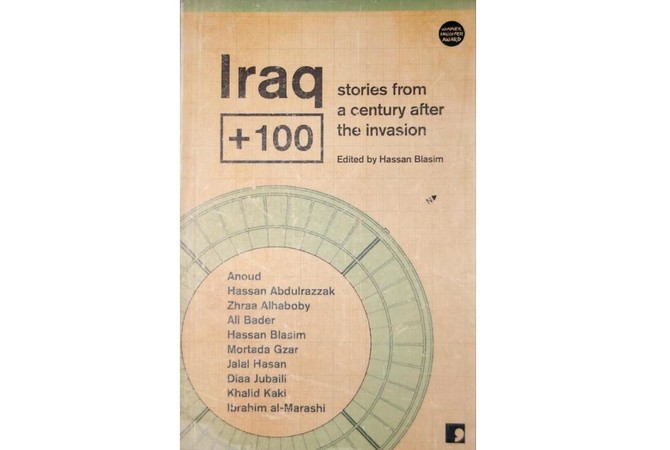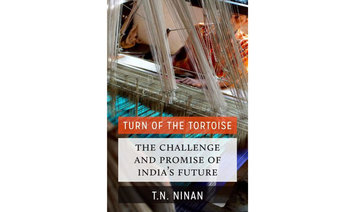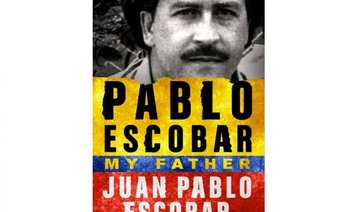“Iraq + 100: Stories from a century after the invasion” is a collection of short science fiction stories by 10 Iraqi authors. The authors, some of whom live in Iraq and some of whom live abroad, imagine what the country will be like in the year 2103.
Edited by Hassan Blasim and originally suggested by Blasim’s publisher, Ra Page, the idea first came up in 2003 as a way to deal with the US invasion of Iraq. Considering science fiction stories are not common in the Arab world, Blasim wrote to many authors to convince them to write a futuristic story based on his belief that “writing about the future would give them the space to breathe outside the narrow confines of today’s reality.”
Blasim received a multitude of stories, in both Arabic and English, which he compiled to create this book.
Many stories stem from oppression, religious fanaticism and capitalist nightmares. Most of the tales are heartbreaking in their own way, as they lay bare the injustice that has riddled Iraq. One such story is titled “Kahramana” by an author called Anoud. The story is set in Sulaymaniyah and centers on Kahramana, who has been coerced into a forced marriage but flees to an international court in the hope that she will be allowed asylum elsewhere. Crowds rally behind her, but as her case takes years, and goes through its own ups and downs, the crowds begin to dwindle and the attention she once received disappears. The story exposes the futility of support and highlights the notion that crowds will rally until time and patience run out, leaving the victims to be forgotten.
This experience is not limited to one country, it is a worldwide tragedy and sadly repeats itself when humans become desensitized to the loss of life.
Creativity and imagination play an important role in the collection as authors such as Blasim, Hassan Abdulrazzak, Mortada Gzar and Khalid Kaki delve into advanced technological visions of Iraq. In “The Gardens of Babylon,” written by Blasim and translated by Johnathon Wright, Babylon is a playground for “virus architects and software artists.” Water is scarce but the Chinese have established a system to counter environmental shortcomings. In Kaki’s story, “Operation Daniel,” translated by Adam Talib, the past is frowned upon and ancient languages and literature are prohibited. Powerful overlords such as Gao Dong, who renames Kirkuk “Gao’s Flame,” believe that citizens are their beneficiaries and must “protect the state’s present from the threat of the past.” In Abdulrazzak’s story, “Kuszib,” life has changed entirely and no semblance of the old world exists.
The authors in this book do not shy away from bleak visions of the future, visions that have arisen from the destructive political and environmental policies of current-day Iraq. Climate change, depleting natural resources and rampant poverty cause the characters to yearn for a time before political struggle tainted the lives of Iraq’s inhabitants. “The Corporal,” written by Ali Bader and translated by Elisabeth Jaquette, is one such story. A fallen Iraqi soldier comes back to the world to tell future Iraqis who he was. He tells whoever will listen that he was born in 1960, served in the Iraqi army for 22 years, faced war for most of his time on earth and died for reasons misunderstood. It highlights the limited opportunities people ravaged by war have when it comes to choosing their own destiny.
Diaa Jubaili, Zhraa Al-Haboby, Jalal Hassan and Ibrahim Al-Marashi focus on futures in which citizens speak of the past and refuse to forget it. There is a particular longing for peace and tranquility in their stories, especially in “The Here and Now Prison,” written by Hassan and translated by Max Weiss. This theme is also prevalent in “Baghdad Syndrome,” written by Al-Haboby and translated by Emre Bennett, in which the older characters still refer to streets by their old names, still dream of Baghdad and revel in a beautiful past.
Each author touches upon Iraq’s tragic history and its bleak future. The destruction of the environment plays as important a role as the destruction of the country. Powerful overlords, authoritarian regimes and the continued limitation of life and freedom are presented in nearly every story, revealing powerful insight into the visions these creative talents have of Iraq’s future. However, a longing for the past keeps hope alive in the stories and allows the reader to revel in a past unknown to them, one that is not forgotten and one that will be carried through time, despite war and invasion. The memories of human life and history cannot be taken away as long as they are written about and remembered and this compilation is a testament to the hope that resides in remembrance, creativity and imagination.


Book Review: A testament to creativity and imagination
Book Review: A testament to creativity and imagination

What We Are Reading Today: ‘Climate Dynamics’

- This second edition includes updated and expanded information on hydrology, the cryosphere, observed contemporary climate change, and climate prediction
Author: KERRY H. COOK
“Climate Dynamics” provides an essential foundation in the physical understanding of Earth’s climate system. Assuming no previous introduction to the climate system, the book is designed for all science, math, and engineering students at the advanced undergraduate and beginning graduate levels.
This second edition includes updated and expanded information on hydrology, the cryosphere, observed contemporary climate change, and climate prediction. In addition, the illustrations are expanded and now in full color.
© 2026 SAUDI RESEARCH & PUBLISHING COMPANY, All Rights Reserved And subject to Terms of Use Agreement.














